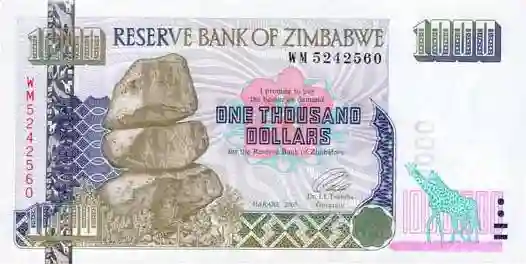The Zimbabwe Coalition on Debt and Development (ZIMCODD) has urged the government to issue banknotes with higher denominations to facilitate transactions given the rapidly rising inflation. The highest banknote in Zimbabwe is currently the $100 note, which has been eroded by inflation.
Blended inflation statistics show a month-on-month increase of 13.3 percentage points to 15.7% in May 2023. ZIMCODD stated that the Zimdollar is on the verge of total market rejection and collapse as it continues to depreciate massively against the US dollar.
The organisation recommended that the government adopt accruals accounting to get a complete and accurate picture of the financial position of the government. ZIMCODD also noted that excessive liquidity growth in the economy, caused by the government’s funding of various projects and obligations, contributes to the decline of the Zimbabwe dollar.
According to ZIMCODD’s monthly economic review report for May, the organization emphasized that higher denomination banknotes were long overdue due to the prevailing galloping inflation in the country. Read the report in part:
These will help increase the public’s transacting convenience which is key in building market confidence.
Adopt accruals accounting to get a complete and more accurate picture of the financial position of the government. This will inform fiscal and budgetary decision-making to avoid misallocation, increase financial resilience, reduce financial risks, and increase transparency.
Granular analysis further shows that YTD the Zimdollar has erased 73% of its value in the interbank market — only 11 percentage points lower than an 84% decline witnessed in the whole of 2022.
These numbers are highlighting that ZWL is struggling to perform a store of value function. As such, economic agents are relentlessly substituting the ZWL — flight to safety to preserve earnings value.
Largely driving incessant ZWL decline is the excess ZWL liquidity in the economy created by RBZ paying for forex ceded by tobacco farmers and exporters. Treasury is also to blame as it is failing to curtail mounting fiscal spending pressures.
It is funding ongoing infrastructure projects, supporting agriculture, cushioning civil servants, and resourcing Zec [Zimbabwe Electoral Commission] to conduct the 2023 harmonised elections slated for August 23.
Furthermore, the Treasury has announced that it will assume all foreign obligations of the Reserve Bank of Zimbabwe and make payments for all foreign currency surrendered by exporters starting this month. ZIMCODD stated that all these measures contribute to the excessive growth of liquidity in the economy.

